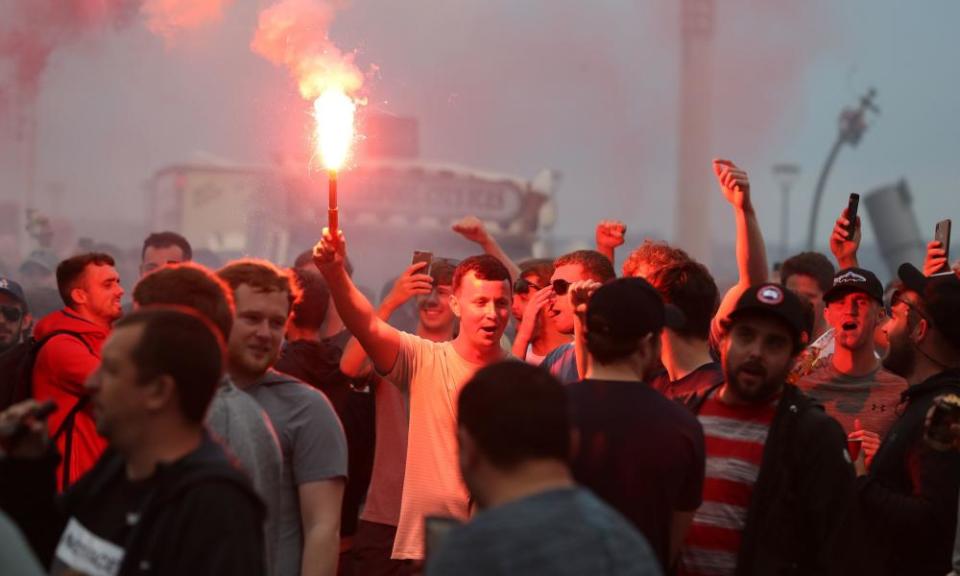The Observer view on the inept and dangerous handling of the easing of lockdown

In the past few days, one thing has become depressingly clear: the riddling and misleading communication that has characterised this government’s failure to control the pandemic will not find an antidote in the near future.
On Wednesday in parliament the prime minister was asked a simple question by Peter Kyle, Labour MP for the seaside constituency of Hove. It was certain, Kyle noted, that with the relaxing of restrictions on socialising, coastal towns like his would become dangerously packed with visitors. “What will the prime minister do in the absence of the promised [track and trace] app to make sure these communities are destinations for investment and not destinations for covid?”
Boris Johnson replied with typical scattergun harrumphing: “I will be calling on local representatives such as himself to show some guts and determination and champion their communities as venues for people to return to and support!”
To take Boris Johnson at his word, drinking and barbecuing – and brawling and littering – was the new clap for carers
Those guts were everywhere on display on beaches by Thursday. Social distancing now designated at “one metre plus” had predictably collapsed to one metre minus. But still, given the prime minister’s exhortation to Kyle at the dispatch box, the people who crammed the beaches – 500,000 in Dorset alone – on the hottest day of the year could justify their day trips with the belief that they were simply doing their national duty. If they were to take Johnson at his word, drinking and barbecuing – and brawling and littering – was the new clap for carers.
Inevitably, at the end of the week, the prime minister was forced to disown yet another ill-judged one-liner and argue that people should “stop taking liberties”. By that point, as with every misstep and false promise his administration has made in recent months, any damage was already likely done.
By the government’s optimistic reckoning, we are entering phase three of this crisis. The daily mortality figures and a rate of new infection that would be a cause for draconian panic in most other nations are apparently to be taken as an indication that the virus is now under control. It is a measure of that wing-and-a-prayer approach that this weekend increasingly beleaguered police forces – from Bournemouth to Liverpool – were no doubt hoping for thunder and lightning, rather than clear government guidance, as their best defence against a repeat of the huge crowds and sporadic scenes of violent disorder of the last week.
No one could fail to hope for a return to something like normal life. At best, however, with the reopening of many venues and businesses next Saturday, we will be entering another world of baffling anomaly. Pubs will be open, but schools will largely be shut; beaches will be heaving, but millions of workers will remain furloughed. With an eye on 1,000-a-day infection rates that, if sustained, will, by reasonable estimates, result in 30,000 more deaths, a senior government scientific adviser insisted on Friday: “This is not party time.” His phrase was echoed by police chiefs, who have understandably urged caution in easing restrictions given the explosive potential of mass gatherings after lockdown. On any available evidence, however, you cannot imagine that the prime minister will be able to resist cheerleading 4 July as the nation’s “Super Saturday” – his weakness for an alliterative phrase will always trump measured guidance – by insisting on pints all round.

Over the summer, we can expect the alarm at teeming crowds to escalate. Beyond the heroic commitment of key workers, the country is becoming divided between those now reluctant to venture out of doors and those with time on their hands and an urgent need to congregate.
Johnson recognised this mostly generational divide in his rambling correction on Friday. “You may think,” he told young people, “you are not going to get it, that you’re immortal and invincible and so on – and very likely that’s true…” There is no excuse for the kind of mob violence shared on social media in recent days, but his patronising tone also undervalued the sacrifices that young people have made in the past months, largely without complaint. Many of the rites of passage that define young lives – exams and their aftermath, coveted plans for jobs and holidays – have been abandoned. Most young people might reasonably require a more inspiring and detailed vision of what they can work towards in the coming months than mixed messages on social distancing in bars.
Hope for greater clarity rests entirely on the viability of the test-and-trace regime, but at every level it still appears to lack rigour. The costly and disastrous app project has gone from being a cornerstone of that programme to “a cherry on the cake” (though how else do you identify 5,000 nearby strangers on a beach?). Meanwhile, the Serco-recruited 20,000 tracers are identifying the contacts of infected people at the rate of 1.5 each per week, while 25% of those testing positive have proved “uncontactable”. One pub chain owner noted a “degree of grey area and flexibility of guidance” about collecting drinkers’ contact information, allowing publicans to make up their own minds about which bits of public health advice to respect.
All of this reinforces an impression of leadership inept at communicating rules and above abiding by them. Johnson would no doubt like to forget his old after-dinner line about his political hero being the libertarian mayor in Jaws, “who kept the beaches open even in the knowledge that his population was being eaten by a giant fish”. Some punchlines get too close to the truth.

 Yahoo Sports
Yahoo Sports 